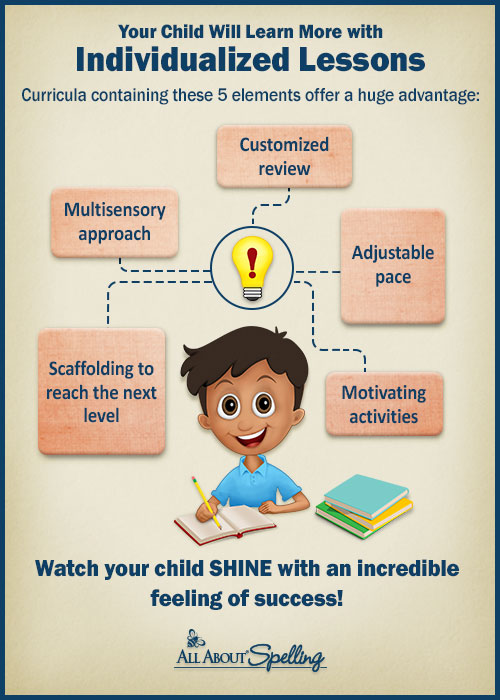Picking the Program
I own Right Start Math Level A (got a great deal on a used set) and All About Spelling Level 1. First of all, I didn't pick just any curriculum. Both programs are mastery, not age based, and right about his ability level. He's become a very proficient reader and is curious about making his own words, so spelling seemed like the next logical step. Also, both programs are very hands on. Xander's fine motor skills are still those of a three year old. He isn't ready for anything with heavy writing, so I needed a way to allow him to continue learning without relying on writing skills. Worksheet heavy curriculum wouldn't work for us (I save them for writing practice).
Going at Your Own Pace
Secondly, I adapt the programs to suit Xander's needs and skills. I bought Right Start Math almost a year ago and we're only on lesson 16. We only do lessons every once in a while and I don't always do an entire lesson at once. Nor do we do all parts of the lesson. Some things he already knows and would be boring to him. Some things he's not ready for. I have been skipping the writing because he strongly dislikes writing practice and I don't want him to dislike math as a result. Also, I want to make sure he knows a concept before we move on. Of course this isn't the most efficient way to go through the program, but my goal is for him to learn and like learning. It's not a race.
We started All About Spelling about a month ago (and while I personally prefer math to spelling, I like teaching with this program better). To keep it from becoming a chore, we only do two or three spelling lessons a week. Furthermore, we do not usually do a whole lesson at once. I break the lessons up into more manageable chunks for his toddler's attention span. When there's a big list of words with which to practice a skill, we do it over two to four days, depending on his mood (that means I do the review work two to four times per lesson). Once again, I've skipped the writing parts. He'll learn to write, but I won't make him hate doing other subjects just because that's what the lesson plan says. No one is going to come in to check that I did everything in exactly the "right" order, so as long as he's still learning and enjoying it, I figure we're doing great. However, I will admit that I do kind of break my own rule for the alphabetizing part. Xander is not always a big fan of putting all the letters in a nice orderly line at the beginning of the lesson, but I do encourage him to do it because it's good practice at alphabetizing and sticking with a task to get it done. I see it kind of like putting away your toys when you're done playing with them.
Being Flexible
Finally, I let him "be Xander" while we're doing lessons. He loves making "stairs" on the abacus, so I know that's the first thing we'll do whenever he see the abacus. I don't usually expect Xander to sit still during lessons. He may sound out words while standing on one foot and kicking the other leg into the air. He called out whether numbers were even or odd while lying in a funny position so he could give me upside-down high fives when he got them right. One day he pointed to the letters corresponding to given sounds with his toes instead of his fingers. He also sometimes prefers to use his letter magnets instead of the letter tiles that came with the All About Spelling (I think because they're easier for him to grab). They're the same colors, so I have no problem with it.
No one knows your own kid like you do, so my philosophy is to do whatever activities you think they're ready to try with your help and do them at the pace that you're both comfortable with.












No comments:
Post a Comment